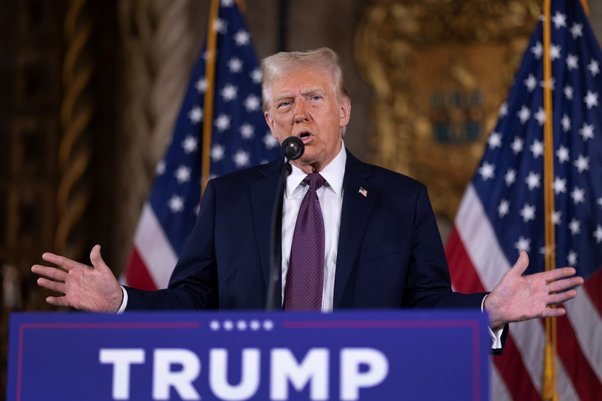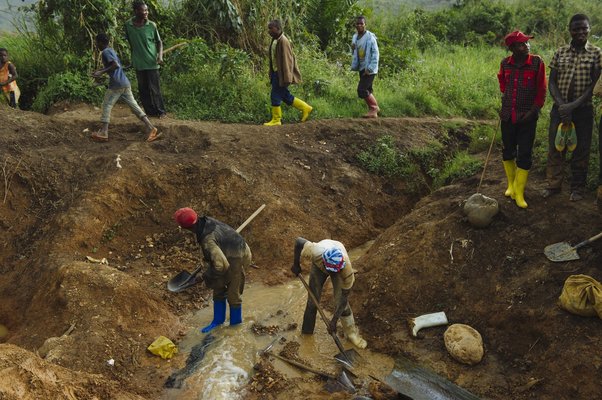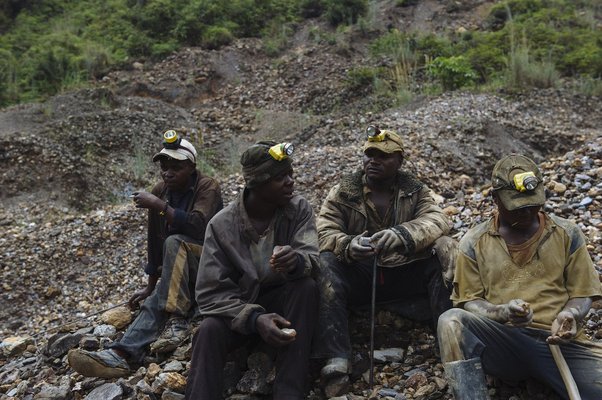Responsible sourcing of transition minerals is no longer just a matter of ethics; it’s a matter of long-term sustainability where all communities benefit
The theme of this year’s New York Climate Week was ‘It’s Time’ and as we push forward with the renewable energy transition, the urgency to decarbonise our economies has never been clearer. Yet, while the transition to clean technologies like solar panels, batteries and wind turbines is essential for combating climate change, it comes with significant social and environmental risk.
As part of NYCW, we hosted a panel to try and grapple with the question of how to ensure that the transition to renewable energy is just and responsible. We wanted it to be an inclusive conversation, bringing together frontline communities directly affected by mining and thought leaders from businesses, with the goal of producing actionable recommendations.
The pertinence of this discussion was clear. As Joan Carling, an indigenous activist from the Philippines, poignantly noted: “There cannot be sacrifice zones.” Communities that have contributed the least to climate change often face the most significant consequences from mineral extraction.
"We're not against lithium mining... but we are against the plundering of our precious water, and we reserve the right to be consulted about mining activities on our lands."
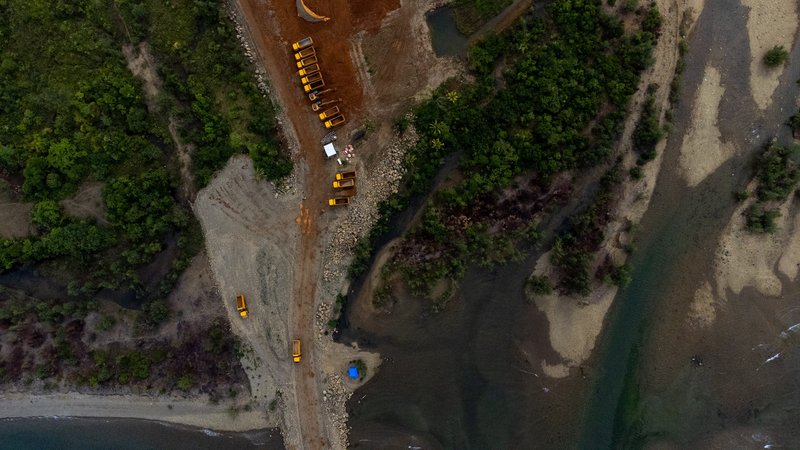
A mining site near Mount Guiting-Guiting in the island of Sibuyan, central Philippines, where communities are standing up to mining operations. Basilio Sepe / Global Witness
The case for responsible sourcing
Transition minerals - such as cobalt and lithium - are often sourced from areas with poor governance and weak regulations, which increases the risk of human rights abuses and environmental harm.
Don Clemente Flores, an indigenous leader from the Salinas Grandes region of Argentina, spoke about how lithium mining threatens his community’s traditional way of life. "We're not against lithium mining," he emphasised, "but we are against the plundering of our precious water, and we reserve the right to be consulted about mining activities on our lands."
In the high salt desert where his community lives, water is a lifeline – not just for agriculture and herding but for the survival of the local ecosystem. For them, the unchecked extraction of lithium and the associated water use represents an existential threat.
His words echo a broader concern shared by many communities in resource-rich regions: extractive companies must seek free, prior, and informed consent (FPIC). Full community consultation, as Joan Carling argued, is "the minimum". Without it, the extraction of minerals for green technologies becomes yet another chapter in the long history of exploitation in these regions.
Beyond consultation, communities must have the right to say no if projects threaten their livelihoods or ecosystems.
The role of business: embedding human rights in supply chains
For businesses, responsible sourcing is no longer just a matter of ethics; it’s a matter of long-term sustainability.
Michael Posner, Director of the Center for Business and Human Rights at NYU’s Stern School of Business, argued that there is a clear business case for embedding human rights into the supply chain. "Businesses need to be part of solving the governance gap," he said.
Poor governance and human rights abuses represent significant risks – not just for the affected communities but for the companies themselves. Reputational damage, legal liabilities, and the potential for disrupted supply chains are all consequences of failing to adopt rigorous due diligence measures.
Yet as Kayla Winarsky McKenzie of BSR pointed out, " Competing priorities can make it difficult for businesses to take actions to respect human rights.”
To address this, companies must move beyond a tick-box approach to FPIC and work with trusted intermediaries to ensure that communities fully understand the implications of mining activities. Only then can companies claim to have earned genuine consent from affected populations.
One of the key takeaways from the panel was the need for mandatory regulation across both upstream and downstream supply chains. Voluntary initiatives have had limited success in curbing abuses, and without legal frameworks that enforce due diligence, human rights will continue to be sacrificed in the name of profit.
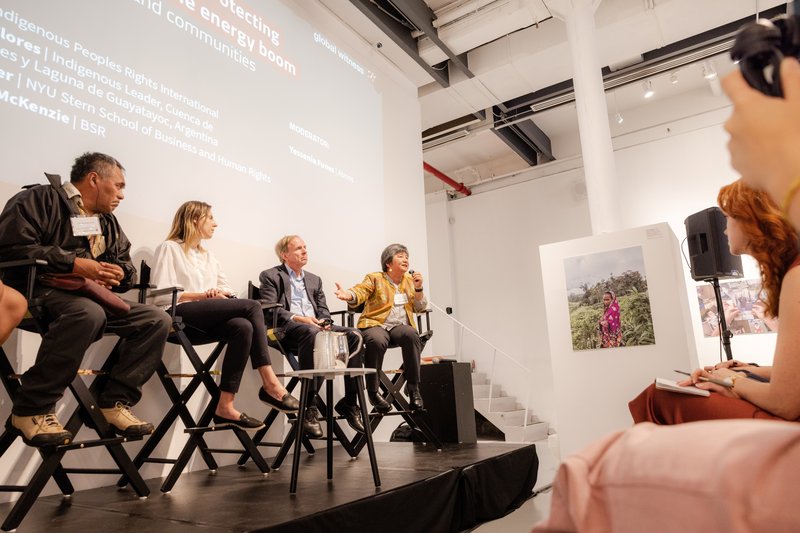
Traditional knowledge as a solution
Another critical point raised during the panel was the role of traditional knowledge in protecting ecosystems and ensuring responsible resource management.
As Don Clemente shared, his community has long monitored the water levels around the Salinas Grandes region, using this knowledge to maintain the delicate balance of their environment. This kind of traditional stewardship, which has been honed over generations, offers valuable insights into how we can manage natural resources more sustainably.
But integrating traditional knowledge into global supply chains requires a shift in how companies and governments engage with local communities. Too often, indigenous and local knowledge is disregarded in favour of top-down approaches that prioritise short-term economic gain.
This is not only a missed opportunity for sustainable management but also a violation of communities’ rights to self-determination.
Moving forward: a rights-based approach
So, what does a just transition look like? At its core, it’s about putting people and communities at the centre of decision-making.
We must "stop prioritising energy over people," Joan Carling warned. We need to rethink the entire framework of how we source transition minerals. This means embedding human rights in every step of the supply chain, from extraction to the final product. It also means investing in alternative models, such as recycling and circular economy practices, to reduce the demand for minerals.
A study by the University of Technology in Sydney, referenced during the panel, suggests that recycling could meet up to half of the demand for some transition minerals by 2040. However, there is still a lack of investment in both the technology and the infrastructure needed to scale this solution. As Kayla Winarsky McKenzie pointed out: “We need serious investment in circularity and sufficiency if we are to address the issues created by demand.”
The renewable energy transition offers a once-in-a-lifetime opportunity to correct the mistakes of the fossil fuel era. As we continue to push for net-zero technologies, let’s remember that sustainability isn’t just about the environment, it’s about equity. True sustainability means a future where all communities benefit from the energy transition.
